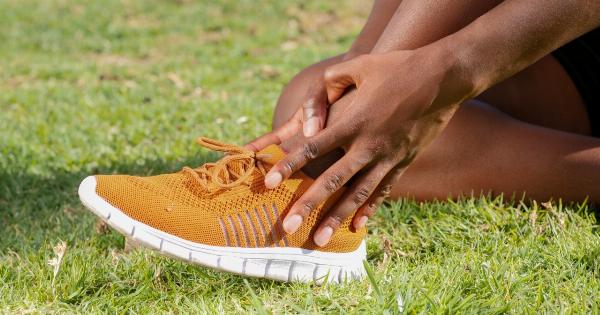Have you ever wondered why some people have shorter legs than others? Short legs can be attributed to genetics and also to medical conditions that lead to stunted growth.
While having short legs may not seem like a big problem, it can cause a number of challenges in everyday life. In this article, we will explore the problems that arise from having short legs.
Walking Difficulties
One of the most obvious problems that arise from having short legs is difficulty with walking. People with short legs often have a shorter stride, which can make it harder to walk quickly or for long distances.
They may also have to take more steps to cover the same distance as someone with longer legs, which can be exhausting and lead to fatigue.
Reaching High Places
Another problem that people with short legs face is reaching high places. This is particularly challenging for those that are shorter than average as they may not be able to reach high shelves or cupboards without assistance.
This can be especially frustrating in situations where they need to get something quickly or when they are alone.
Difficulty with Activities That Involve Leg Work
People with short legs can also face difficulties when it comes to activities that require leg work. For example, they may have trouble cycling or running due to the shorter length of their legs.
This can be particularly frustrating for sportspeople who want to participate in activities but are held back by their body type.
Back and Knee Pain
Short legs can also lead to back and knee pain. When you have shorter legs, your joints have to work harder to compensate for your body’s height.
This means that you are more likely to develop pain as your joints endure more pressure than they are designed to handle. Additionally, the shorter stride length of people with short legs can cause them to hunch their backs while walking, leading to further pain in the back and neck muscles.
Problems with Clothing
People with short legs may also find it difficult to find clothing that fits them properly.
Pants and jeans may be too long, leading to bunching and discomfort, while skirts and dresses may be too long or too short, leading to discomfort and awkwardness.
Stigma and Discrimination
Unfortunately, people with short legs may also face social stigma and discrimination. They may be seen as less capable or intelligent, which can lead to feelings of inadequacy and a lack of self-esteem.
They may also be discriminated against in the workplace or in social situations due to their height, which can be deeply hurtful and unfair.
Lower Career Opportunities
Studies have shown that people with short legs may also have lower career opportunities than people with longer legs.
This is because height is often associated with success and power, while people with short legs may be seen as less capable or authoritative.
Challenges in Relationships
People with short legs may also face challenges in relationships. They may feel insecure about their height, leading to feelings of inadequacy in romantic relationships.
They may also face difficulty finding partners who are attracted to people of their height, which can be isolating and discouraging.
Conclusion
While having short legs may not seem like a big deal, it can cause a number of challenges in everyday life.
From difficulty with walking and reaching high places to social stigma and discrimination, people with short legs face a number of obstacles that can be difficult to overcome. By raising awareness of these challenges, we can work to eliminate discrimination and promote understanding and acceptance of people of all body types.



























